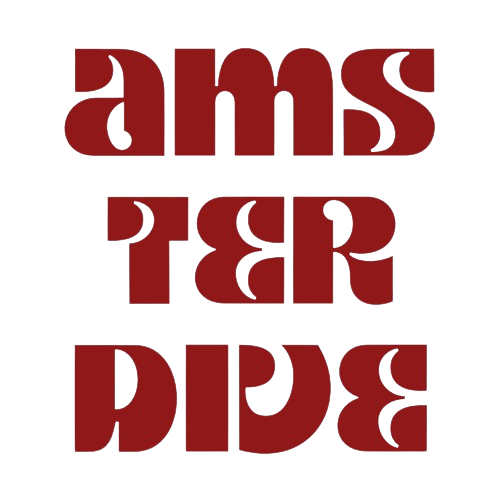The case for learning Dutch - part I
Excuse me, could you please tell me where we are?
The man uttered something completely unintelligible. I asked him if he could, please, repeat. He did so, expressionless, in the exact same cadence as before. The sounds I heard did not resemble the name displayed at the tram stop. Doors opened in front of us. He got in. No internet on my phone back in 2012: no maps to orient me. As I stood by tram stop Weteringschaans, alone, lost, and feeling very stupid on my third day in Amsterdam, I vowed to brave the waves of a new, very odd-sounding, language. I walked all the way back to the Indische Buurt, where I lived, stopping here and there to ask humans if I was going in the right direction.
The language-learning journey was long and exasperating. Improvements were much too slow and, for a year or so, it felt like they weren’t happening at all. But once I was finally able to strike up a simple conversation in Dutch fluidly - I want to say around the 1.5-year mark - I felt almost startled. I was doing it. By being able to speak Dutch, I had crossed onto the other side of a bridge. The self-confidence that process ultimately gave me had a knock-on effect in different areas of my life. I started undertaking other projects as a consequence (one of them, this very blog). It was a period of euphoria, in a certain sense. And it all stemmed from a need to belong.
I arrived in town with no absolutely no plan. My background in theatre and writing was never going to be enough for me to secure a decent job in the Netherlands, I thought, so I had to find other ways to stand out. The most logical move had to be learning to speak Dutch. For starters, I was in love with Amsterdam culture and felt a strong urge to set roots here. Remaining ignorant of what was being said around me felt like a dreadful existence, a lonely experience at the very least. I could sense it from the expat bubbles I dipped my toes in. There was a general satisfaction with newfound freedoms and quality of life. There were so many questions and misconceptions about Dutch society, however. Those who lived here for an extended period without ever learning the basics of Dutch often exuded some kind of bitterness that I suspected was linked to isolation. I was not to not remain an outsider. I had to be able to understand locals on a deeper level and to make myself understood.
The Dutch don't make it easy for foreigners to learn their language though. They switch to English every time an accent is detected, or someone takes 2 extra seconds to produce a sentence. A beginner trying to find the right words is thus shut off in the blink of an eye. The beginner is, more often than not, a highly skilled expat, working a high-demanding, generally highly-paying job without much free time on hand. The incentive to develop an interest in the language is, therefore, meager. The Dutch population, wired as it is for pragmatism, thinks they do us a favor by facilitating English into the conversation. They see their language as a difficult one to learn and tend to get confused when someone even tries. Especially when they often speak 3 or 4 different languages themselves.
Looking back, I think my journey with the Dutch language allowed me to practice resilience. I was forced to manage both my motivation and my tolerance for frustration. Learning a language from scratch puts you in a place of vulnerability. Interestingly, from what I observed, the higher the person’s education level, the trickier it is for them to be willing to make themselves beginners. But being able to keep at it and move forward despite the apparent lack of progress gave me the confidence to believe that if I had been successful once, perhaps I'd be capable of making other things happen too.
I will not say this is an easy project to undertake. For around one year, this language was my main focus. I had a day-time job and I followed an evening Dutch course. I did not do much else. Professionally, I was feeling lost, so I was eager to be more settled. Speak people's language and you'll get close to them, I thought. And it proved right. In a nutshell, language learning is repetition - repetition - repetition. Apart from understanding how grammar works, it is unimaginative like that. And you can do this too, my friend. It requires commitment, but you can. I will say it is one of the most rewarding things I’ve ever done. In the meanwhile, the sounds that once struck me as outlandish, make me feel at home. Gezellig. Leuk. Wacht even. Ja, hoor! Lekkeeeerrrr
This is the first of a series of articles on this topic. I hope it can give you the extra incentive to push through your journeys of Dutch language learning. If you have ideas and questions about this topic, I’d love to hear them!
♒︎
Ana V. Martins is the founder of & creative brain behind amsterdive.com. Ana Creates Meaning is the venue for her most personal writing. Get in touch: anavmartins@amsterdive.com.
Follow us on Instagram @amsterdive ✴︎



